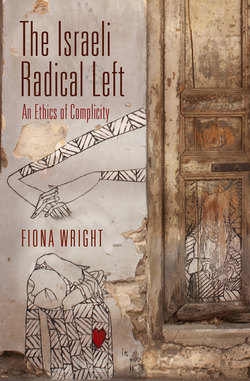The Israeli Radical Left

Реклама. ООО «ЛитРес», ИНН: 7719571260.
Оглавление
Fiona Wright. The Israeli Radical Left
Отрывок из книги
The Israeli Radical Left
Tobias Kelly, Series Editor
.....
Soon after the June 1967 Six-Day War, when Jordan’s rule of the West Bank and Egypt’s occupation of the Gaza Strip were succeeded by Israeli military occupation, and with Israel also occupying the Golan Heights in Syria and the Sinai desert in Egypt, fractures appeared both within the Labor government and more broadly in Israeli politics between those who sought to settle Jewish citizens in the newly conquered territories and those who believed that those areas should be kept “in custody” until they could be returned in exchange for peace (Isaac 1981; Pappe 2004: 200). As the settler movements proved successful in their ideological project, already colonizing southern areas of the West Bank in the years immediately following its occupation, early radical movements of the Israeli left emerged in opposition to the settlement of “Greater Israel” and to the military occupation of the West Bank and Gaza. One of the most notable, Matzpen (Compass), a 1962 breakaway from the Israeli Communist Party and formed by a group of Jewish Israeli intellectuals, gave one of the first sustained and public critiques of Israel as a Western imperialist state (Bober 1972; Nahas 1976; Rubenstein 1985). The Communist Party itself was also outside the national political consensus, given its membership of both Jews and Palestinians and its clear advocacy for a two-state solution, long before this had become the norm in Israeli leftist politics (Pappe 2004: 201). In the differences between these two early radical movements, the split between those supporting the Zionist project and the validity of a Jewish state, though within certain political and ethical boundaries, and those whose relationship to Zionism was either more ambivalent or unequivocally oppositional, also emerges a distinction which would be carried throughout the history of Israeli left-wing activism, even as these and other ideologically distinct groups continued to work together at various moments over their histories (Kaminer 1996).
In the years since 1967 and the kibush (occupation) of the West Bank and Gaza Strip, dozens, if not hundreds, of peace organizations emerged in opposition to Israeli state policies toward the Palestinians. These organizations could roughly be grouped into the following historical periods: (a) 1967–1977: the last years of the dominance of the Labor Party in government and the beginnings of Israeli settlement in the occupied territory; (b) 1977–1987: the period of rule by the right-wing Likud Party under Menachem Begin, and the First Lebanon War—the first war seriously questioned as a “failure” by a large section of the Jewish Israeli population; (c) 1987–2000: the period of the first intifada (Palestinian “uprising”) and the negotiation of the Oslo peace accords; and (d) 2000 onward: the years since the outbreak of the second intifada, in which “peace” has largely been considered an elusive or impossible aspiration, and the Left has been seen to be in decline. The first period (1967–1977) consolidated the emergence of a Marxist critique of Zionism as colonialism, reflecting global political events and movements, and based primarily on the activities of Matzpen and the Israeli Communist Party, as well as the appearance of groups such as SIAH (Israeli New Left) and Moked, further breakaway student groups from the Communist Party. During this period, the early roots of conscientious objection—the Israeli refuseniks—also took shape, as the 1973 Yom Kippur War resulted in the anger of reservists and demands for accountability after misgivings about governmental and military authority (E. Weiss 2011). As Menachem Begin was negotiating with Anwar Sadat in 1978, the process which resulted in the Israeli-Egyptian Peace Treaty of 1979, Shalom Achshav (Peace Now), one of the primary peace organizations campaigning in the 1980s and 1990s, was born off the back of an open letter to Begin signed by 348 reserve officers and soldiers from Israeli army combat units urging him to work toward meaningful peace accords (Kaminer 1996).
.....